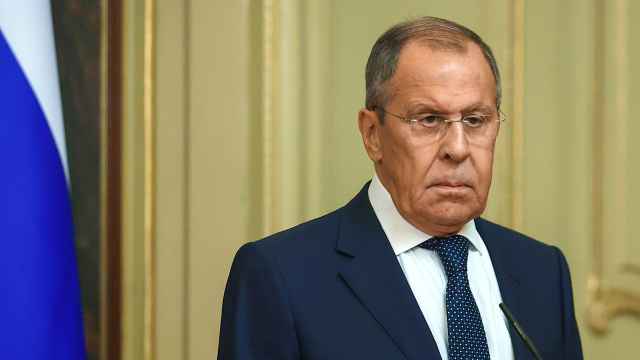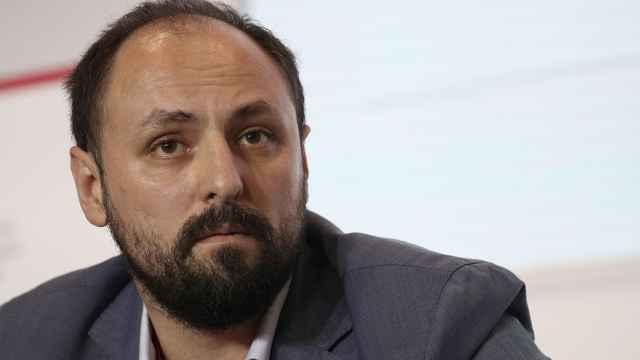At his post-summit news conference on Wednesday President Putin defended Russia’s repressive laws that punish dissent.
With most eyes on Geneva, the Duma made one of those laws a lot harsher. It amended the criminal code to open the floodgates to criminal prosecutions of activists allegedly linked to blacklisted “undesirable” foreign organizations.
Under Russia’s existing and insidiously expanding legislation on “undesirable” organizations, the prosecutor’s office can designate as “undesirable” any foreign or international organization that allegedly undermines Russia’s security, defense, or constitutional order.
Once blacklisted, any such organization must cease all activities in Russia. Other organizations and individuals that engage in “continued involvement” with these organizations may be subject to administrative and criminal sanctions. The Duma recently adopted another bill that, among other things, would expand this ban beyond Russia’s borders.
So far 34 organizations have been blacklisted as “undesirable,” without any prior warning or explanation.
The new amendments make it easier to open criminal cases for alleged affiliation with undesirable organizations. Previously criminal proceedings could only be initiated if the targeted person already had two administrative sentences within the previous year.
Under the new law, the authorities could open criminal cases alleging that a person has a leadership or management role in an undesirable organization without any prior offenses. This offense carries a punishment of up to six years in prison.
Also, the authorities will be able to press criminal “participation” charges if a person had only one prior administrative sentence on the same charge, or right away – if a person had a prior criminal conviction for the same, carrying a punishment of up to four years in prison.
Under another amendment, anyone making donations, or organizing crowdfunding or providing unspecified “financial services” to the blacklisted organizations can immediately face criminal charges and up to five years in prison.
These amendments, that are highly likely to become the law soon, expose a wide range of activists to a high risk of criminal prosecution.
In recent years, the authorities have prosecuted activists perceived to be associated with the Open Russia Civic Movements on grounds of affiliation with an “undesirable” organization. Several, including Maxim Vernikov, Yana Antonova and Anastasiya Shevchenko were found guilty for nothing more than reposting an entry on social media, attending peaceful protests, participating in public debates, or other legitimate acts of free expression, assembly and association. They will now become sitting ducks for potential new criminal proceedings.
Even before the most recent bills, the authorities had harshened their approach to these cases, for the first time using pre-trial detention in the case of Mikhail Iosilevich earlier this year and stopping a departing international flight to detain Andrey Pivovarov. Both remain in custody, despite evidence undermining the alleged grounds for which pretrial detention was imposed.
We have already seen that the authorities interpret “participation” as loosely as they please.
Iosilievich’s total lack of involvement with Open Russia did not preclude his prosecution for affiliation. The prosecution said he let Open Russia use his café for a public discussion, even though it was another group that held the event.
People may also find themselves hit with criminal “participation” charges because, unbeknownst to them, a judge had designated other groups they are supporting, affiliated with or merely making reposts from their social media accounts, as surrogates for an “undesirable” organization. This was what happened in Leonid Malyavin’s case in Krasnodar. With the new criminal liability for donations and crowdfunding, activists acting in good faith and supporting a group or organization that is not blacklisted, could be targeted.
The authorities have also conveniently used such “undesirable” cases to raid and harass unrelated activists and groups, in one case with an absolutely tragic result.
And in March, the authorities busted a political opposition forum, using the “undesirables” law as a pretext.
The Geneva summit has come and gone. No one expected Putin, at his news conference, to have a sudden epiphany about human rights, or to do anything but turn on the “whataboutism.”
But what could still happen, even if it would come as an incredible surprise, is for the upper chamber of parliament or the president to reject this bill as a blatant violation of international legal protections for freedom of expression and association. They should do so and protect the many people whose only offense is legitimate civic activism.
A Message from The Moscow Times:
Dear readers,
We are facing unprecedented challenges. Russia's Prosecutor General's Office has designated The Moscow Times as an "undesirable" organization, criminalizing our work and putting our staff at risk of prosecution. This follows our earlier unjust labeling as a "foreign agent."
These actions are direct attempts to silence independent journalism in Russia. The authorities claim our work "discredits the decisions of the Russian leadership." We see things differently: we strive to provide accurate, unbiased reporting on Russia.
We, the journalists of The Moscow Times, refuse to be silenced. But to continue our work, we need your help.
Your support, no matter how small, makes a world of difference. If you can, please support us monthly starting from just $2. It's quick to set up, and every contribution makes a significant impact.
By supporting The Moscow Times, you're defending open, independent journalism in the face of repression. Thank you for standing with us.
Remind me later.








